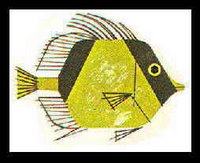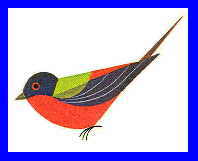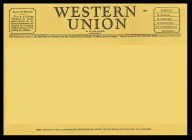Mr. Mercury asked: The quist, apparently hastened by flack tones, rolled twice. Summer strums take their toll. Whatever shall I do?
Thank you for the question, Mr. Mercury. I would suggest an aspirin and a nice long lie down. If that fails, allow the quist a little nibble and a flit about the room to see if that helps.
17 February 2006
15 February 2006
Great Minds Think Alike
Joy in Indiana has a question about academic speakers: I would be curious who you see as academics who can actually distill complicated topics in a way that even someone completely new to an area of study can understand them.
Thank you for the question, Joy. This is an interesting topic, and one I had never really thought of before now. Here, after much thought, are two:
Astronomer Carl Sagan (1934-1996), the truly great mind who also knew how to make something easy to follow. Putting aside the "billions and billions of stars" parody, this man knew his stuff. His television series "Cosmos" made science and space accessible for millions of mere mortals.
Historian Michael Grant (1914-2004). Among many other things, he was a great author of more than 50 books on classical history -- among them "The Classical Greeks" (1989), "The Etruscans" (1981), and my personal favorite "The Rise of the Greeks" (1989). The Greeks, Romans, Etruscans, et al contributed so much to our modern civilization, their histories can be overwhelming; yet, Grant knew so much and was able to whittle it all down in a way that anyone could follow. If you have any interest in classical history, his books are must reads.
I would love to hear from you: Who do you think is a good academic speaker or presenter?
Thank you for the question, Joy. This is an interesting topic, and one I had never really thought of before now. Here, after much thought, are two:
Astronomer Carl Sagan (1934-1996), the truly great mind who also knew how to make something easy to follow. Putting aside the "billions and billions of stars" parody, this man knew his stuff. His television series "Cosmos" made science and space accessible for millions of mere mortals.
Historian Michael Grant (1914-2004). Among many other things, he was a great author of more than 50 books on classical history -- among them "The Classical Greeks" (1989), "The Etruscans" (1981), and my personal favorite "The Rise of the Greeks" (1989). The Greeks, Romans, Etruscans, et al contributed so much to our modern civilization, their histories can be overwhelming; yet, Grant knew so much and was able to whittle it all down in a way that anyone could follow. If you have any interest in classical history, his books are must reads.
I would love to hear from you: Who do you think is a good academic speaker or presenter?
12 February 2006
Dear Diary,...
I have to admit I was a little surprised to realize that today is the exact date I first wrote in my journal 25 years ago: 12 February 1981. Wow! What a long time to keep a journal. It is amazing how much has changed in those years.
The reasons I started my written (then electronic) journal were myriad; but probably the greatest reason was that, as a professional writer, I thought it was the thing to do. I was 21 years old, and had been in my new home of San Francisco for nearly two years.
All these years later I still try to keep to my New Year's Eve tradition of reading a past year's entries. The people I knew and forgot, the events, the things that seemed so important back then.
A few years ago I added a new section to my journal: memories from before 1981. This includes things my parents told me about their early lives together, childhood events, school, etc. As they come to my mind, I write them down. I have created a little timeline of my life. Pretty cool, when you think of it.
You know, it is never too late to start a journal -- even online journals, like web blogs. You might just be as surprised as I have been at how wonderful they can be.
The reasons I started my written (then electronic) journal were myriad; but probably the greatest reason was that, as a professional writer, I thought it was the thing to do. I was 21 years old, and had been in my new home of San Francisco for nearly two years.
All these years later I still try to keep to my New Year's Eve tradition of reading a past year's entries. The people I knew and forgot, the events, the things that seemed so important back then.
A few years ago I added a new section to my journal: memories from before 1981. This includes things my parents told me about their early lives together, childhood events, school, etc. As they come to my mind, I write them down. I have created a little timeline of my life. Pretty cool, when you think of it.
You know, it is never too late to start a journal -- even online journals, like web blogs. You might just be as surprised as I have been at how wonderful they can be.
11 February 2006
Cold Fins, Warm Heart
 Kris in Sydney, Australia has a question about whether tuna are warm blooded. I thought all fish were cold-blooded. Is my high school biology textbook out-of-date?
Kris in Sydney, Australia has a question about whether tuna are warm blooded. I thought all fish were cold-blooded. Is my high school biology textbook out-of-date? Thank you for the question, Kris. It's important to know the difference between cold and warm blood.
Humans are warm blooded (endothermic). This means that we generate heat in our bodies and can stay warm no matter the environment in which we find ourselves. Endothermy was a very important evolutionary adaptation that helped mammals survive during cold times.
Creatures that are cold blooded (ectothermic) do not have any internal mechanism for generating heat, and must rely on the environment to supply it for them. This is why lizards do not move fast on cold mornings, and must sit on a warm rock in the sun to increase their body temperature.
Similar animals have similar methods of generating heat: mammals are warm blooded, reptiles are cold blooded. Generally speaking, fish are cold blooded; however, some fish are different.
There are about 30 species of fish that have some degree of ability to control their body temperature -- tuna among them. This affords them great advantages in hunting for food, as they do not need to stay in water of a specific temperature, as would other fish. It also allows tuna to swim very fast -- some have been clocked at up to 40 miles per hour over short distances -- allowing them to hunt faster prey, or avoid slower predators.
The illustration is by famed naturalist Charles Harper.
10 February 2006
Just Ask Christopher
Do you have a question you need answered? Maybe I can answer it.
Click on the word "Comments" at the bottom of this entry and leave your question. Questions can be of any kind: factual, advice, opinions, etc. EACH question asked will be addressed -- even if I cannot answer it. I would love to know where you are writing from (city -- and country if not America).
Click on the word "Comments" at the bottom of this entry and leave your question. Questions can be of any kind: factual, advice, opinions, etc. EACH question asked will be addressed -- even if I cannot answer it. I would love to know where you are writing from (city -- and country if not America).
07 February 2006
Now, What Was I?...
Here is a really fascinating look at why we... uh... what's that cat doing now?... at why we get... is that the telephone?... I'll be right back.
Please note: Free registration may be required to view the Los Angeles Times article.
Please note: Free registration may be required to view the Los Angeles Times article.
05 February 2006
110 and Counting
 It's true: it has been 110 days (and counting) since the last measurable amount of rain in the metropolitan Phoenix area (where I live). Every day is a new record, besting the previous record of 101 days set back in the 1999-2000 rain season.
It's true: it has been 110 days (and counting) since the last measurable amount of rain in the metropolitan Phoenix area (where I live). Every day is a new record, besting the previous record of 101 days set back in the 1999-2000 rain season.Of course, that is not a record for a city in America. The now-gone city of Bagdad, California went without rain for 767 days between 1909 and 1912. Wow! That's more than two entire years! (Which is perhaps why it is now a ghost town.)
So, I guess that means we have 658 more days to go until we hold the American record.
The illustration is by famed naturalist Charles Harper.
03 February 2006
Please Please Stop
 I don't know why it matters, but it does: As of 27 January 2006, Western Union stopped sending telegrams after more than 150 years.
I don't know why it matters, but it does: As of 27 January 2006, Western Union stopped sending telegrams after more than 150 years. Who knows from telegrams today anyway with our privacy constantly bombarded with messages from cellular telephones, computers, 24-hour satellite television. It is hard to fathom that, not very long ago, there was a world where news was broadcast over one of only four radio networks, most of the people who were literate got their news from newspapers, and the fastest way to communicate something urgent was via a telegram.
Ah, the telegram. Whether it began with the words "Congratulations!" or "Arriving Santa Fe RR Sunday Noon," or "The Secretary of War expresses his deep regret," the telegram was a thing to be eagerly anticipated or gloomily dreaded.
Entire episodes of radio programs revolved around not wanting to open a telegram lest it convey bad news; Jack Benny's radio show included weeks-long running gags about his being too cheap to pay for the 11th word (the first ten words were included in the price of the telegram). "Congratulations on tenth anniversary stop Wish you would please stop" (punctuation marks cost extra, which is why sentences ended with "stop").
So too, like many other wonderful parts of our history, goes the telegram. Soon, there will be no living man whose first job was as a bicycle messenger; the signature peach-colored paper fading in so many scrap books hidden away in attics. There are times when progress isn't.
This site has a nice, brief history of the telegram.
You will find an interesting NPR report here .
01 February 2006
2003 UB313
Okay. It's a new month, and time for a new question:
In this article from the New York Times are details of a new planet recently discovered. Right now, they are calling it "2003 UB313" which, let's face it, just doesn't sing. So, given the chance to name a new planet, what would you call it?
I am hoping for some serious offerings here -- and I state categorically that the name "Bob" will be deleted if offered.
Please note: Free registration may be required to view the New York Times article.
In this article from the New York Times are details of a new planet recently discovered. Right now, they are calling it "2003 UB313" which, let's face it, just doesn't sing. So, given the chance to name a new planet, what would you call it?
I am hoping for some serious offerings here -- and I state categorically that the name "Bob" will be deleted if offered.
Please note: Free registration may be required to view the New York Times article.
Subscribe to:
Posts (Atom)